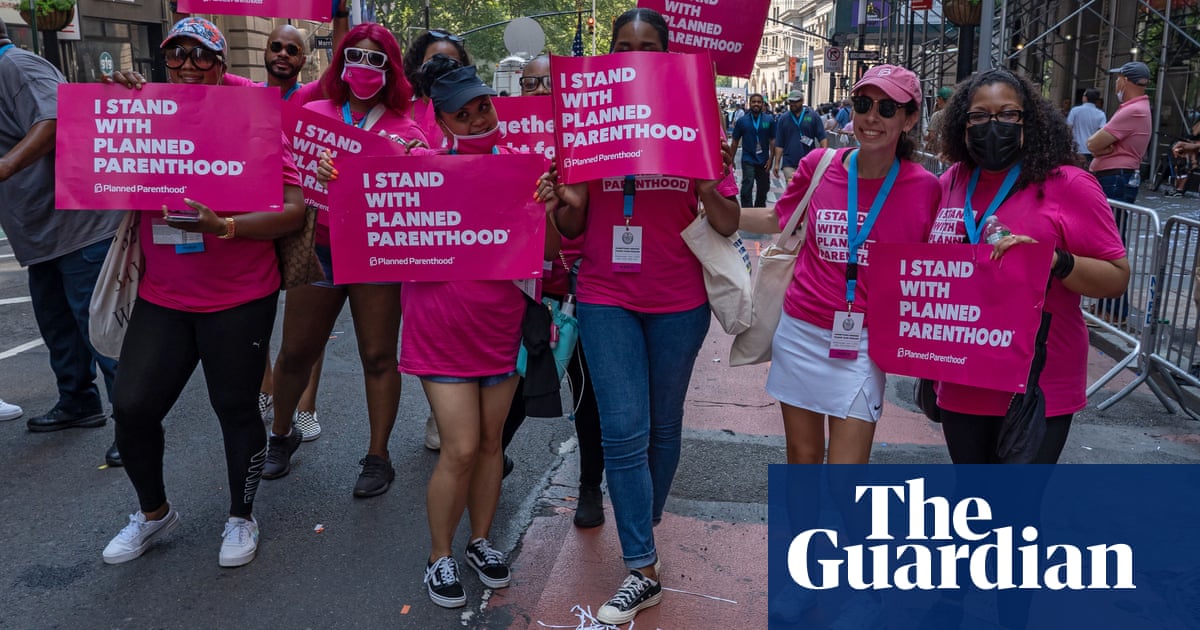Tech
New York Planned Parenthood staff decry ‘devastating’ abortion service cuts

In the coming weeks, Planned Parenthood’s Manhattan health center will stop offering core reproductive health services, including abortions after 20 weeks and deep sedation for procedures like abortion or IUD insertion.
The Manhattan clinic currently offers abortion through 24 weeks and is the only Planned Parenthood location in the state that does so. The group has been beset by financial challenges, and plans to close a number of New York clinics in the near future.
Planned Parenthood of Greater New York (PPGNY), which operates the Manhattan clinic, announced the changes – which the group said were temporary and would take effect on 3 September – earlier this month, blaming them on financial problems. The organization said it would refer patients in need of those services to independent providers.
“Any reduction of access is really devastating,” one staff member said. “People who are seeking abortion later in their pregnancy are a really vulnerable and highly stigmatized group of people.”
Staffers said that the clinic already quietly stopped providing some services, more than three weeks before the 3 September date.
In a release, PPGNY cited budget shortfalls due in part to state lawmakers failing to increase Medicaid reimbursement rates for medication abortion. More than half of the organization’s patients have Medicaid, a state-run health insurance program for low-income people. The affiliate says the financial strain makes it unable to afford a third-party anaesthesia provider, and that deep sedation is its standard of care for abortions after 20 weeks.
The New York affiliate said it has instituted other cost-cutting measures such as executive pay cuts and consolidated job functions, but PPGNY also plans to close four health centers pending state approval – including its only clinic in Staten Island, which currently only offers medication abortion.
More than 115 workers at the Manhattan clinic signed a petition to PPGNY leadership on 2 August urging them to renew the contract with the anaesthesia provider. Deep sedation – one level below general anaesthesia – is an important option for minors, sexual assault survivors and people with PTSD and other mental health diagnoses, the staffers wrote. They added that, of the clinic’s abortion patients who don’t use pills, about 80% opt for deep sedation.
The affiliate has quietly cut back on services weeks ahead of the scheduled change, clinic staff say.
One employee said deep sedation was now only available for abortion patients over 19 weeks and six days of pregnancy, for people allergic to the drugs used for moderate sedation, and for those with substance use disorder. (The drugs are an opioid and a benzodiazepine.) There are no other exceptions, they said.
Some patients who booked abortions with deep sedation for August made the necessary and often expensive preparations, only to learn upon arrival that their only options were moderate sedation and local anaesthesia, a second staffer said. Some chose not to have an abortion as a result, while others felt they had to proceed as they had already taken time off work or arranged childcare. Both staffers asked to remain anonymous for fear of professional retribution.
The anaesthesia contractors are still working on-site for the permitted cases until 31 August, even though they are not providing services for patients before 20 weeks.
“We had a minor flying in from another state devastated and inconsolable because she was now having to be referred out for deep sedation,” an anonymous worker said in a statement issued by 115 anonymous staff members protesting against the change. “We’ve had to tell a patient who tried to go through with the procedure without deep sedation but couldn’t tolerate it, to get dressed and we wouldn’t be able to complete the procedure here, even though our anesthesia provider was sitting 10 feet away,” reads another staff account.
Planned Parenthood of Greater New York’s CEO, Wendy Stark, acknowledged in a statement that the clinic had “reserved deep sedation resources in the last month of our contract” for select patients. Stark said the operational changes were “heartbreaking” to make and cited “unprecedented challenges” facing the affiliate, including budget deficits of “well over $10 million”. She urged state officials to increase Medicaid reimbursement rates for abortions done with pills.
“A lot of people do really well with moderate sedation,” the first worker said. “We just want people to still have this option.” The other added: “We have a lot of patients who prefer to be asleep, for whatever reasons that they choose.”
Planned Parenthood leadership said at a June meeting that the new gestational limit would affect a small number of people as “only” 282 patients had abortions after 20 weeks in 2023. The staffers wrote in the petition: “As healthcare workers, we consider this intolerable collateral damage.”
The workers call on the PPGNY, New York state and donors to “find a way” to prevent the service cuts.










